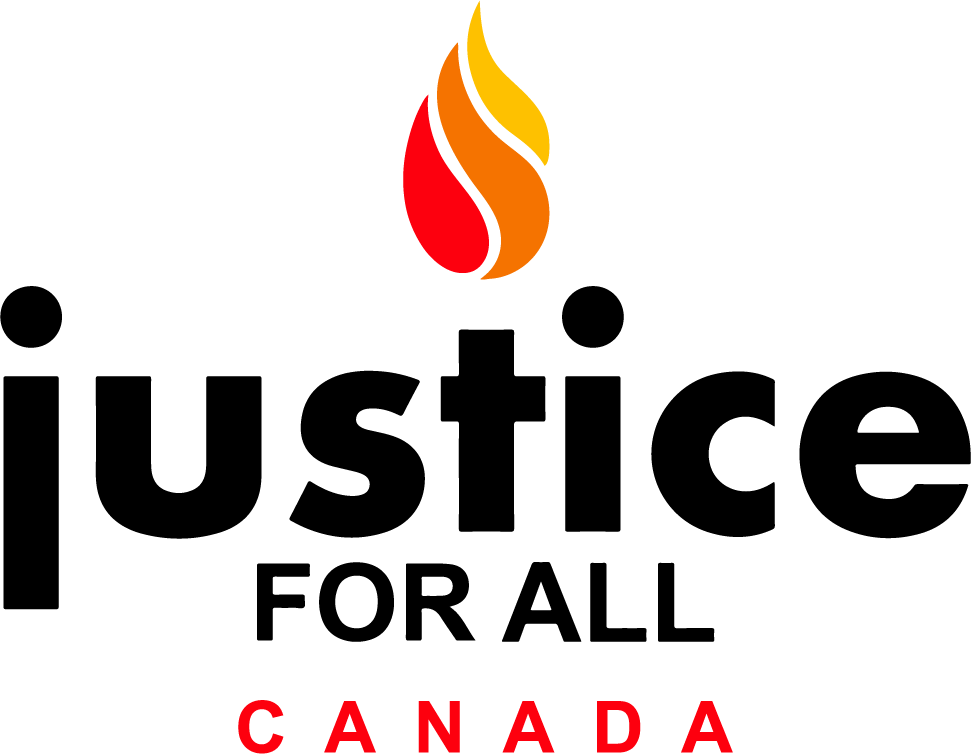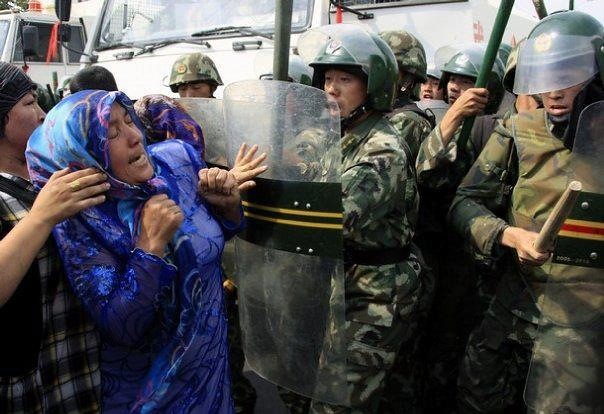June 22nd, 2022
This week, Liberal MP Sameer Zuberi introduced a critical motion urging entry for 10,000 Uighur Muslims as refugees into Canada. Parliament will vote on tabled motion M-62 later this year. MP Zuberi, Chair of the Subcommittee on International Human Rights, argued that Uighurs who flee conditions in China and East Turkestan “face pressure and intimidation to return.”
Justice For All Canada supports the proposed refugee resettlement plan, which seeks to protect displaced Uighurs from “serious risk of mass arbitrary detention, mass arbitrary separation of children from parents, forced sterilization, forced labour, torture and other atrocities.” Canadian human rights activists appreciate MP Zuberi’s leadership in initiating refuge for Uighurs in need.
Justice For All Canada has previously advocated for Uighur refugees and asylum seekers to Prime Minister Justin Trudeau. In April 2022, the Parliamentary Subcommittee on Immigration called on the government to allow displaced Uighurs to seek refuge in Canada without UNHCR determination prerequisites. In the same month, newly released immigration measures were unclear whether the same considerations for Ukrainian, Rohingya, Yemeni and Afghan refugees would be extended to Uighurs.
Since the late 90s, China’s government has targeted Uighurs across 28 countries in an unprecedented example of transnational repression. Chinese authorities use harassment, extradition and deportation to control, repress, and intimidate Uighurs who flee persecution.
According to Oxus Society and the Uyghur Human Rights Project;
“We see Canadian leadership initiating a new stream for Uighur refugees to Canada. We’re hoping for concrete outcomes of this motion. But whether this makes a real difference for detained Huseyin Celil is a question still neglected by the Canadian government,” said Taha Ghayyur, Executive Director.
Host countries with political and economic ties to China are often complicit in this repression and deportation system concerning Uighurs. Huseyin Celil, an Uighur Canadian citizen, was detained and deported to China while visiting family in Uzbekistan. Celil was an Imam and human rights activist already recognized as a refugee by Canada and the UN. Despite his Canadian status, Chinese authorities still imprisoned Celil. The Canadian government has not prioritized his release.
The Federal government has also failed to act under international law concerning the Uighur genocide—a human tragedy now documented with photographic evidence. The government failed to act under its Declaration Against Arbitrary Detention in State-to-State Relations. Huseyin Celil’s case contains all the markers of hostage-taking and detention, yet no considerable action was taken under this Declaration (arbitrary detention, torture, ill-treatment, and persecution because of his human rights work and Muslim identity). According to a new report, 12 Canadian companies currently operate their supply chain linked to cotton from the Uighur region in East Turkestan (Xinjiang).
We call upon the Canadian government to:
This week, Liberal MP Sameer Zuberi introduced a critical motion urging entry for 10,000 Uighur Muslims as refugees into Canada. Parliament will vote on tabled motion M-62 later this year. MP Zuberi, Chair of the Subcommittee on International Human Rights, argued that Uighurs who flee conditions in China and East Turkestan “face pressure and intimidation to return.”
Justice For All Canada supports the proposed refugee resettlement plan, which seeks to protect displaced Uighurs from “serious risk of mass arbitrary detention, mass arbitrary separation of children from parents, forced sterilization, forced labour, torture and other atrocities.” Canadian human rights activists appreciate MP Zuberi’s leadership in initiating refuge for Uighurs in need.
Justice For All Canada has previously advocated for Uighur refugees and asylum seekers to Prime Minister Justin Trudeau. In April 2022, the Parliamentary Subcommittee on Immigration called on the government to allow displaced Uighurs to seek refuge in Canada without UNHCR determination prerequisites. In the same month, newly released immigration measures were unclear whether the same considerations for Ukrainian, Rohingya, Yemeni and Afghan refugees would be extended to Uighurs.
Since the late 90s, China’s government has targeted Uighurs across 28 countries in an unprecedented example of transnational repression. Chinese authorities use harassment, extradition and deportation to control, repress, and intimidate Uighurs who flee persecution.
According to Oxus Society and the Uyghur Human Rights Project;
- 89 Uighurs in 9 South and Central Asian countries were detained or sent to China from 1997-2007
- 130 Uighurs from 15 countries faced transnational repression from 2008-2013
- 1,327 Uighurs were detained or rendered from 20 countries from 2014 to 2021
“We see Canadian leadership initiating a new stream for Uighur refugees to Canada. We’re hoping for concrete outcomes of this motion. But whether this makes a real difference for detained Huseyin Celil is a question still neglected by the Canadian government,” said Taha Ghayyur, Executive Director.
Host countries with political and economic ties to China are often complicit in this repression and deportation system concerning Uighurs. Huseyin Celil, an Uighur Canadian citizen, was detained and deported to China while visiting family in Uzbekistan. Celil was an Imam and human rights activist already recognized as a refugee by Canada and the UN. Despite his Canadian status, Chinese authorities still imprisoned Celil. The Canadian government has not prioritized his release.
The Federal government has also failed to act under international law concerning the Uighur genocide—a human tragedy now documented with photographic evidence. The government failed to act under its Declaration Against Arbitrary Detention in State-to-State Relations. Huseyin Celil’s case contains all the markers of hostage-taking and detention, yet no considerable action was taken under this Declaration (arbitrary detention, torture, ill-treatment, and persecution because of his human rights work and Muslim identity). According to a new report, 12 Canadian companies currently operate their supply chain linked to cotton from the Uighur region in East Turkestan (Xinjiang).
We call upon the Canadian government to:
- Take concrete actions to safeguard the rights of Uighur refugees facing uncertainty and deportation.
- Act under the Responsibility to Protect (R2) doctrine—a legal commitment made by UN member states with significant leadership from Canada in 1994. R2P protects populations from genocide, crimes against humanity, ethnic cleansing and war crimes.
- Live up to declared values by acting to protect Uighur Muslims who fled from the ongoing genocide perpetrated by the Chinese government.

